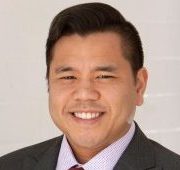ASK any parent whom they would want to inherit their estate and the overwhelming majority would answer the same thing, “My kids.” Unfortunately, many Filipino parents are unintentionally disinheriting their children that they love and adore.
Here is how it usually happens: A man marries, has children, works hard and accumulates an estate, i.e., generally their home and savings. Then, his wife dies. After a few years, he meets a woman who brings meaning back into his life. They both fall in love. He remarries. Then, a few years later, the man dies.
Suddenly, the children discover that his second wife has acquired everything their father worked and saved for all his life. But, even worse, a few years later the second wife dies. Now, the father’s children learn that her children, strangers to all of them, have inherited everything. The man’s children are disinherited by default.
What does your will say? I know, you have a simple estate. Essentially, your will states that when one spouse dies, the other spouse will inherit everything. When the second spouse dies, the estate will then go to the children – right? This is all well and good as long as neither spouse remarries after the firsts spouse dies.
Now, in an ideal world, you would marry the “love of your lifetime” and nobody would get divorced or die too early, i.e., there would be no second (or third) marriages. Unfortunately, there will be some 800,000 new widows/widowers in the U.S. this year (National Mental Health Association – 2002) and another 1 million divorces in the U.S. (National Vital Statistics Reports released by the Centers for Disease Control and Prevention – 2009).
Second and third marriages are becoming more and more common. Many parents will remarry and draft new wills leaving everything to their new spouse. This creates a major problem. In this second will, children from the first marriage are left out in the cold. When the second parent dies, the entire estate is passed on to the second spouse and not to the children.
At that point, it is entirely up to the second spouse as to whether or not your children will see any of your money. It is not enough that your spouse says he or she will take care of them. Realize that if you have not made correct provisions for your children, then you may be disinheriting them unintentionally.
If you are a widow or a widower in a second marriage, will your children (from your first marriage) be left out in the cold if your current spouse outlives you and decides to favor his or her own children in their will? Quite possibly “Yes,” if you have an overly simplistic will that leaves “everything to my spouse.”
What if your children are listed as beneficiaries of your will? If you have re-titled all of your assets in joint ownership with your new spouse, you may have still unintentionally disinherited your children (if you die first) no matter what your will says.
If you want to make sure that your children are designated to receive your inheritance and still allow your spouse access to family assets so that he or she maintain their standard of living, a typical “will” is usually not the best estate planning vehicle to use – a Living Trust is the most common solution.
A Living Trust will keep your family out of probate saving tens of thousands of dollars (perhaps hundreds of thousands of dollars). Also, a Living Trust can provide for your surviving spouse while he or she is living; then, upon your second spouse’s death, the remaining assets will go to your children.
Living trusts are very common for blended families because you can guarantee that your children from a prior marriage will receive your inheritance while allowing your current spouse access to the inheritance amount. The amount of access your spouse has to the inheritance amount is largely up to you.
Exactly how this is resolved for you will depend on your situation and the size of your estate. It takes careful planning with an experienced attorney who can be objective and look at your situation from all kinds of angles and possibilities. But you must make sure you seek a qualified estate planning attorney – especially if you have a blended family.
* * *
Elder Law Services of California is proud to announce that attorney Andrew Paranal has joined its trust department. Mr. Paranal began his career in estate planning in 2013 and has since expanded into asset protection and Medi-Cal planning. He became interested in Elder Law after helping care for a family member who experienced a debilitating event. Mr. Paranal is excited to join an established law firm and hopes to educate his Filipino community about the tremendous benefits of proper estate planning.
For more information, please visit elderlawcalifornia.com or call 1-800-411-0546





